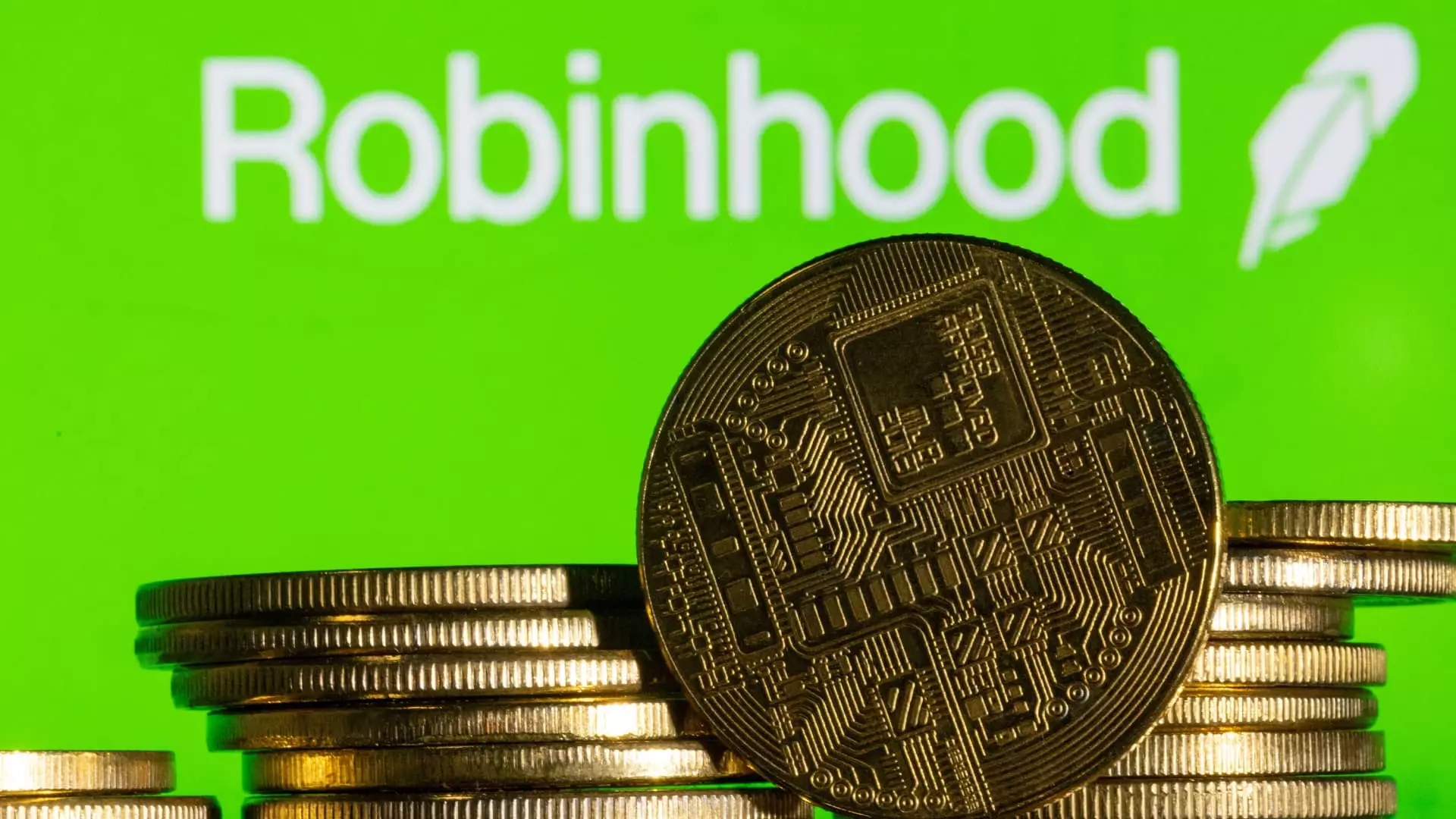As we traverse through the current financial landscape, investors are hit with a wave of caution regarding major banking institutions. Heavyweights like JPMorgan Chase and Goldman Sachs have witnessed declines of approximately 4%, while Citigroup has tumbled over 4%, and Wells Fargo led the downturn with a staggering 5% drop. This isn’t merely a blip on the radar; it’s an alarming indication of deepening concerns surrounding a potential economic slowdown in the United States. In a nation that thrives on robust financial institutions, this unfolding reality raises pivotal questions—are banks equipped to sustain their stability in these turbulent times, or are we heading for a period of reckoning?
Given the intertwined nature of banks and the economy, the consequences of these declines extend far beyond quarterly earnings. A weakened banking sector signifies rattled investor confidence, a potential increase in borrowing costs, and a discouragement of consumer spending. If banks can’t find their footing amid economic uncertainties, the ramifications for small businesses and personal finance could be dire. Underneath these volatile shifts lies an inescapable truth: the American economy may be facing a broader crisis than we are willing to admit.
Robinhood: From Disruptor to Pariah
Once hailed as a revolutionary force in making financial services accessible to everyone, Robinhood is now sinking under a weight of regulatory scrutiny and financial turmoil. With shares plunging over 14% after being ordered to pay $3.75 million in restitution to customers, this marks a critical moment of reckoning for the stock-trading platform. The accompanying $26 million fine imposed by FINRA points to a failure in anti-money laundering programs, opening a Pandora’s box that raises serious concerns about the ethical practices of fintech firms.
The fall from grace is staggering. Investors who once rallied behind Robinhood, perceiving it as a democratizing force in finance, must now reconsider the implications of short-sighted business practices. The cautionary tale here serves as a reminder that financial innovations cannot eclipse the foundational principles of integrity and responsibility. Robinhood’s once-vibrant brand now carries a tarnished reputation, sparking questions of continued viability and consumer trust. Is this the beginning of the end for a platform that was supposed to democratize trading?
Cryptocurrency: The Dawn of a Retreat
In the past few years, cryptocurrency promised groundbreaking changes to the financial ecosystem. However, with Bitcoin’s recent drop of 3% and other crypto assets falling even more steeply, we’re witnessing a sea of apprehension wash over the market. Figures like Coinbase and bitcoin proxy Strategy losing significant portions of their values signals a palpable retreat from speculative investments.
The crypto community often spoke of resilience and future growth, yet as uncertainty swirls, the cracks in that narrative become apparent. The allure of digital currencies may be fading, and heavy exposure to these volatile assets could prove fatal for portfolios bolstered by the notion of quick returns. As traditional frameworks of investment come under pressure from overreaching speculative strategies, it’s time for a sober reassessment of what cryptocurrencies can realistically offer in the immediate future.
The Resurgence of Real Estate: A Bright Spot Amidst Gloom
In stark contrast to the grim narratives surrounding banks and cryptocurrencies, the recent performance of Redfin paints an optimistic picture against a backdrop of economic doom. Surging by approximately 70% following its announcement of a $1.75 billion acquisition by Rocket Companies, real estate is rapidly asserting itself as a resilient sector ripe for growth. Investors seem to view the deal as a strategic move, challenging the dominant narratives of decline in other markets.
What makes the Redfin story particularly relevant is that it underscores the importance of adaptability and strategic foresight in investment strategies. In times of economic uncertainty, sectors that demonstrate growth potential offer refuge from market turbulence. As a center-right liberal, I appreciate the emphasis on market-driven outcomes and company quality, which appears to be what Redfin exemplifies amid chaos. The value creation associated with such acquisitions serves as a beacon of hope, reminding us of the intrinsic value of real estate investment.
Tech Giants: Riding the Volatility Wave
The tech sector remains a double-edged sword, with companies like Nvidia losing nearly 20% of their value over recent weeks. While the stock once soared to dizzying heights on the back of technological promise, the volatility is a stark reminder that even industry leaders are not immune to a downturn. Stocks tied to artificial intelligence, like Oracle, have faced similar challenges, falling more than 10% this year alone.
It’s crucial for investors to recognize that while tech innovations hold substantial promise, market realities often lead to a painful re-evaluation of company valuations—an adjustment that current strategies seem ill-prepared to handle. The fervent enthusiasm surrounding tech stocks often blinds investors from scrutinizing underlying financial fundamentals. Even as we march towards a digital-first future, prudent assessment of viability and sustainability must guide investment decisions.
In this whirlwind of market movements, investors are forced to critically evaluate their strategies and alignments with emerging realities.

